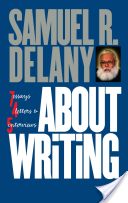
A Theory of Fun for Game Design is written by an author who deeply loves games, understands how they work, and believes in them as an art form. As the forward by Will Wright notes, Koster brings a multi-disciplinary method to the examination of games, pulling out basic concepts and breaking them down in a way that is both easy to understand and enjoyable to read. Accompanying his pithy observations are cartoons illustrating each concept, such as the illustration accompanying “Stories are powerful teaching tools in their own right, but games are not stories,” in which one student says to another, “I beat the last level of Ulysses last night. I had to use god mode for the end boss. Molly is really tough!”
A listing of the chapters provides a good sense of the book:
- Why Write This Book?
- How the Brain Works
- What Games Are
- What Games Teach Us
- What Games Aren’t
- Different Fun for Different Folks
- The Problem with Learning
- The Problem with People
- Games in Context
- The Ethics of Entertainment
- Where Games Should Go
- Taking Their Rightful Place
With Gamergate still brewing merrily on Twitter, those last few items seem particularly important. “The Ethics of Entertainment” contains all sorts of useful stuff, including a passage about end user experience typical in Koster’s wry, succinct summations:
He goes on to say something that resonates with recent discussions:
The ethical questions surrounding games as murder simulators, games as misogyny, games as undermining traditional values, and so on are not aimed at games themselves. They are aimed at the dressing.
Koster extends that even further, saying directly “Creators in all media have a social obligation to be responsible with their creations.”
Despite Koster’s correct insistence that games are not stories, for writers, Koster’s book is well worth reading. A lot of the material overlaps with the ways people enjoy stories, particularly the section about the brain.
The book may also change the way you perceive games when playing them, mainly because Koster talks about them in terms of an art form, like a story or a painting, rather than the trivial pursuit label that sometimes get slapped on such entertainments. Koster believes deeply in the evolution of games to something as immersive and enlightening as any other media.
#sfwapro





